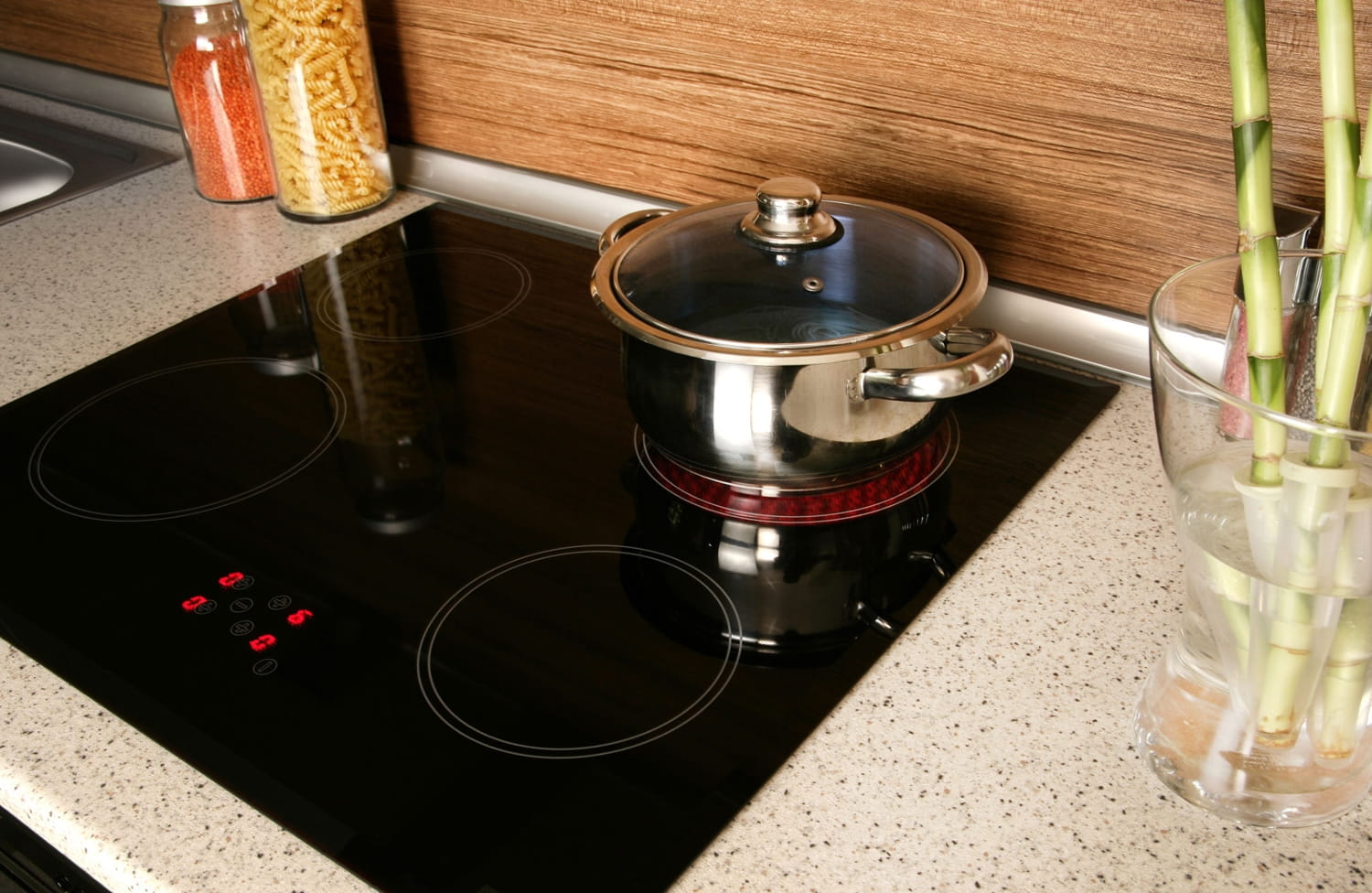So you have heard your electric stove making clicking noise. Ever wondered why it happens?
Sometimes the stove igniter keeps clicking even when you are not using it. In this case, there is a real reason for you to worry.
After all, an electric stove making noise when off is absolutely abnormal. But at the same time, there are reasons why this happens – and it is important to know why. This way, you can address it accordingly and prevent the issue from getting worse.
Let’s get right into it.
Electric Stove Making Clicking Noise
Your electric stove made popping sound, and you wonder why this occurs? Perhaps it is not that loud or it was nothing but a slight, one-time popping noise.
Still, it bothers you because your stove did not normally do that before.

Electric stoves are pretty convenient appliances, just as much as they are convenient.
Yet, when you hear just the slightest noise, it can cause people to worry. And we do not blame you – after all, you would not want to take chances.
Here are the common reasons why you may hear a clicking noise coming from your electric stove.
1. Thermal Expansion
In the case of a clicking sound, the noise may be due to thermal expansion. What this means is that the metal expands, causing the clicking sound. On the flip side, metal contracts as it cools and expands when heated.
2. Vibration
There are also instances when vibration occurs, which cause electric stoves to rattle. Thus, not only can you hear a clicking sound but also a humming kind of a noise because of a vibration.
3. Bad Fan Motor
If the fan motor of your stove is faulty, then a clicking noise is likely to arise. The sound is also likened to a rattling noise that tends to get louder as it persists. This happens as you turn your stove on. Your oven stays ventilated because of the fan.
So, if the fan is faulty, you may need to turn it on manually by opening your range and removing the inner panel. However, do this only when you have the technical skills to do so.
When you observe a stiffer fan movement, a replacement may be necessary. The blades can also break, which means you need to get a new one.
4. Arcing
This is a typical issue that happens in many electrical appliances. The arcs are quite small, yet there may be larger arcs that produce louder sparks. These are dangerous things that can mean bad news when it happens.
5. Cooling System Problems
Modern models of oven come with cooling systems. They continue to work well even when your range is turned off. So, if you hear some strange noises even after switching the range off, it could be due to the cooling system still functioning.
Other Reasons Behind The Popping, Clicking Or Buzzing Noise

As we have mentioned, there are several reasons why your electric stove may produce strange noises – no matter how faint or loud these may be. The following are among the other reasons:
1. Buzzing Sound
If you notice a buzzing sound, the fan is still at work and causing the stove to get the ventilation it needs. Moreover, this is typical to happen when you have been running the oven for quite a while, especially when you have been baking for several minutes.
However, if the sound is louder than it is supposed to be, this could be a sign of a problem. Perhaps, the fan is broken, which means you should look for other signs. Among these signs are a rattling noise or the fan overheating. If you observe these scenarios, you need to get a replacement for your fan to solve not only the noise but the other concerns, as well.
2. Popping Noise
It is fairly typical that a popping noise is due to any faulty issues with electrical components. The wiring may be torn or frayed, which causes the popping sound.
Additionally, burn marks signal a problem. You may want to check for signs of burn, which cause the sparks and acs in your appliance. Although electric stoves are sturdy and heavy duty, any signs of it malfunctioning may start a fire or electrocute you, which is very dangerous and life-threatening.
But at the same time, never deal with these problems unless you have professional experience and expertise with electrical items. Switch your stove off, call a technician, and let an expert do the job for you.
In case you are afraid to even touch the stove, you can simply turn the power off right at the circuit breaker for safety purposes.
3. Other Strange Noises
In addition to clicking, popping or buzzing noises, there are other weird noises that your electric stove may be producing that can cause you to worry.
Do take note that some noises are completely normal. When you switch it on or off, there really is a clicking noise that you would hear. The cooling and heating process can also generate this clicking sound.
Your stove has motorized door latches, control boards, relay switches, as well as other electrical components causing these clicking sounds. So, it is best to know exactly the source and cause of the noise before you get concerned.
If the sound is because of the cooling, heating, or turning off or on process, then it should be temporary. If you notice the sound being constant and getting louder, then that is something to be concerned about.
4. Ticking Noise
Do you notice some ticking noises in your electric stove? This usually comes from your stove’s relay, which regulates your stove’s temperature. The ticking sound is completely normal unless you notice it becoming constant.
The clicking may begin to sound faint, yet it may become more like a crackling or popping noise. This means that the metal is contracting and expanding as the stove cools or heats.
But if the clicking is constant, be sure to consult a technician. This way, you can determine the source of the problem or if there is an issue with the relay switch.
Final Thoughts
An electric stove making clicking noise can be due to numerous reasons. It may be a normal part of the operation as the cooling system does its job, or could be as you turn the unit on or off.
However, any abnormal reasons behind the noise need to be addressed appropriately. An expert can help to diagnose and solve the problem, which can also prevent further safety issues in the future.






